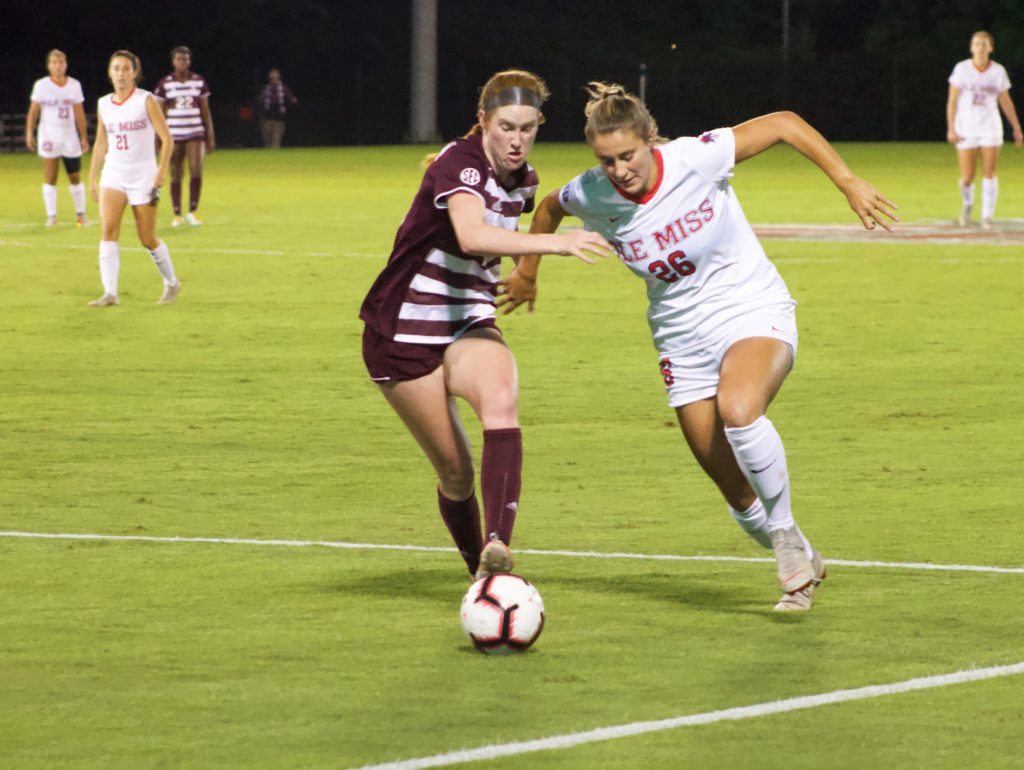Dr. Deborah Birx, the coronavirus response coordinator for the White House Coronavirus Task Force, visited the University of Mississippi on Saturday amid recent reports that Oxford is one of the top metropolitan areas with the greatest number of new cases per capita.
She also said that the report from The New York Times could be misinterpreted, and that she didn’t want the report to change any threshold numbers because college towns tend to skew the rate.
“1,000 cases in a university in a town of 16,000 looks very different than 1,000 cases in a town of 1.5 million,” Birx said. “The potential for spread is equal, but it looks much higher.”
Birx spoke to the media after a closed roundtable discussion with UM leadership, state and local officials, and healthcare professionals.
Birx said that she is impressed with how the university is handling the coronavirus, especially with the addition of random asymptomatic testing, which began last week.
“The university is finding cases,” Birx said. “We want to push them to find more asymptomatic spread, but they’re finding cases, they’re quarantining, they’re isolating, and most importantly, they’re caring for the students. They have nurse practitioners checking in with those students.”
She said that since university administrators made the decision to bring students back to campus, they have an obligation to work through any outbreaks and ensure the safety of the students and surrounding community.
“It’s clear that this university has put the health of the students first and the health of the community first, and I just wanted to thank the administration and their leadership for their amazing work here on campus,” Birx said.
Provost Noel Wilkin spoke about the university’s contact tracing, which allows students who live on campus to know whether they have come in contact with people who have tested positive.
“(Contact tracing) has helped us to more effectively manage outbreaks. In terms of overall numbers, I can give an estimate of somewhere around three or 400 students at some point had to go into quarantine since we started doing that procedure of quarantine,” Wilkin said.
The Daily Mississippian confirmed five outbreaks in student housing that resulted in the quarantine of up to 300 students. The university’s COVID-19 dashboard has shown up to 16 outbreaks in student housing at once and currently shows 10. Additionally, the university has not released the number of students quarantining off campus.
Chancellor Glenn Boyce said that he “hadn’t heard of too many” universities with contact tracing teams, and he considers the university’s team invaluable.
“Our contact tracing team made up of 21 individuals has done an outstanding job. They have extensive training in order to conduct this tracing, and they’re all volunteers. We appreciate their service to our community,” Boyce said.
Wilkin also said that the contact tracing has helped the university determine that most of the virus’s spread has happened among students off campus.
“Instead, it is more likely taking place in social activities or engagements or in other spaces where people are interacting with each other, taking their mask off with their guard down, something of that nature,” Wilkin said.
Birx encouraged students to participate in asymptomatic testing. According to university officials, the university can test up to 500 students per week.
“I think increasing testing in students will be critical. They have the capacity. It’s just that not all the students volunteered,” Birx said. “So we really need to get that message out that testing is a path forward to stay open.”
Birx said that she is thoroughly impressed so far with how the South is handling the coronavirus.
“The entire South has shown us a way forward with this virus. What Mississippi has been able to do just over the last four to five weeks shows us that if we change our behavior, if we wear our masks, if we social distance, … there is a pathway forward that maintains retail open, maintains universities and maintains schools open,” Birx said.
Boyce said that he is very grateful to be working alongside Birx during the COVID-19 crisis.
“As the White House coronavirus advisor, she has tremendous insight in what’s working across our nation,” Boyce said. “She’s a trusted national leader in his fight against this pandemic, and we’re grateful for her leadership and her interest in our pandemic efforts.”
















